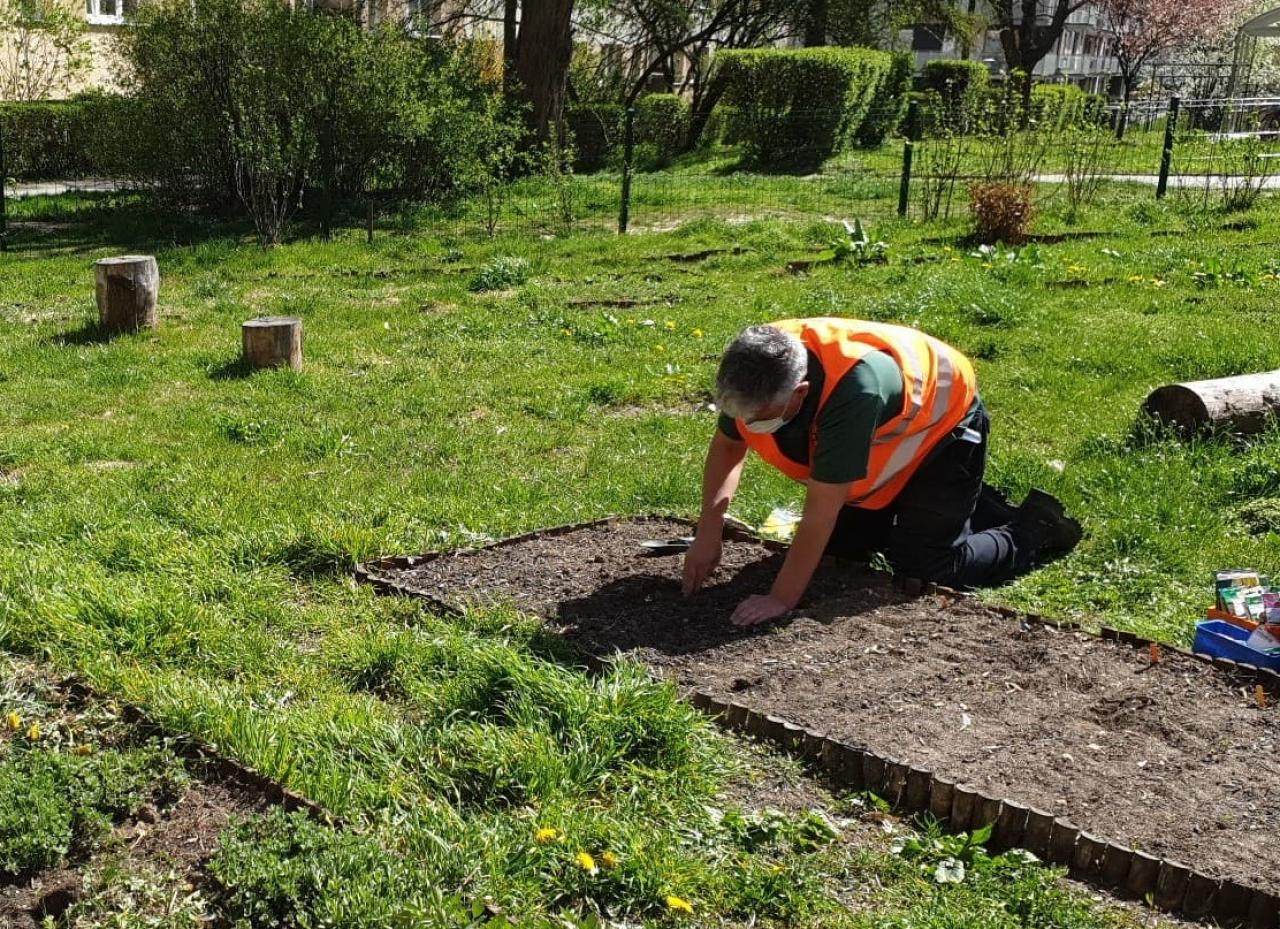
The COVID-19 pandemic has shocked and overturned the lives of the entire globe, this is a certainty… without a doubt. The virus has affected countries on the same continent unequally, but each and one of them is fighting it. How are countries reacting, what measures are they taking, what are the effects on society? The answer to these questions has been on our every-day news for the last three months: with enormous difficulties, restrictions on our most inalienable freedoms and, above all, indescribable pain and loss.
Activities in urban gardens throughout the RU:RBAN Network cities came to a complete stop during the month of March, in compliance with safety provisions to contain the spread of the virus. Although urban gardens were not attended by human beings, nature followed its own calendar and the life cycle of our vegetables didn’t seem to miss us much: they bloomed and grew all the same, and “nature took over”, just to quote one of the gardeners from Thessaloniki.
But what about us, the gardeners, during the lockdown? How are we supposed to meet for our ULG (Urbact Local Group) meetings? How can we discuss on the activities to be carried out in terms of maintenance of our gardens and, most of all, the sowing and planting due in spring? Well, somehow these circumstances have spurred human beings and shown their resilience: we meet online thanks to the use of platforms and technological tools available for everyone. It is safe to say that the impossibility to meet physically has tempted gardeners to “meet” (virtually) more often than they used to, perhaps motivated by the worry for the survival of , gardens and the need to share their concerns with others. The fact is that in Thessaloniki, for example, ULG members have been more active than ever in this sense. Whereas in Caen, for example, ULG members have kept in touch constantly via email and newsletters. After the initial ban to access urban gardens in Krakow during the month of March, gardeners can now resume their activities while respecting all the safety measures in place (social distancing, wearing a mask, no gatherings in the gardens etc). However, the pandemic has made it necessary to postpone the city’s Transnational Meeting and an international conference that were to take place in June 2020. The process was very similar in A Coruña and Loures, where all on-site gardening training activities have been postponed to further notice. Activities in urban gardens in Vilnius, however, continued throughout the pandemic, although with restrictions in terms of the maximum number of gardeners present at one time in the plots and safety measures to be observed (masks and social distancing). In Rome the ban on access to all parks and urban gardens was active throughout the month of March and part of April, when the Mayor allowed gardeners to access their plots under very strict conditions: 1 gardener each 50sqm of land, only a reduced number of gardeners organized in shifts are allowed at the same time in the area, the list of the gardeners for each shift is to be sent to the Urban Garden Office of the City Administration, no social activities are allowed in the urban gardens.
In addition to what has been happening in our RU:RBAN cities, we need to highlight how much the COVID-19 has turned the spotlight on the reality of urban gardens also outside the EU borders: they are recognized as an instrument to fight poverty which, unfortunately, has now become an emergency within the health emergency throughout the world. This is the reason why the Mayor of the City of Barranquilla (Colombia) has sought for advice in RU:RBAN to find possible solutions for the integration of immigrants and for the provision of food to citizens who live day by day. Urban gardens could represent an extraordinary solution for the emergency many South American countries are now facing. A meeting was held with representatives of the Colombian city and a Vademecum is being drafted containing guidelines on the implementation of urban gardens, which will be shared with Barranquilla as part of the collaboration project between the URBACT and IUC Programmes.
As we enter the different phases of the pandemic and we “learn” to cohabit with the virus, we have no alternatives to that of adjusting to new working methods and new ways of “socializing”. Having said this, we hope to overcome this crisis in the very near future so as not to resign ourselves to the fact that the social component of our urban gardens becomes something of the past: without sociality our urban-community gardens would become simple vegetable gardens, full stop.

